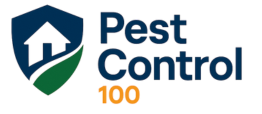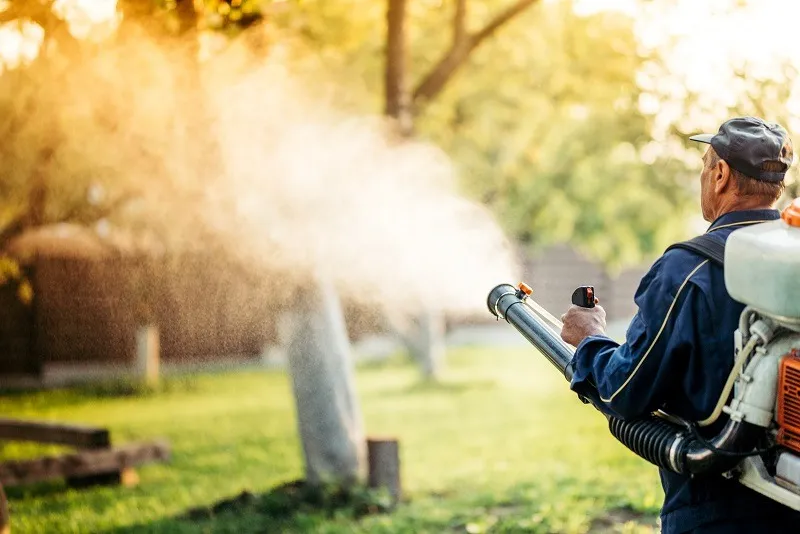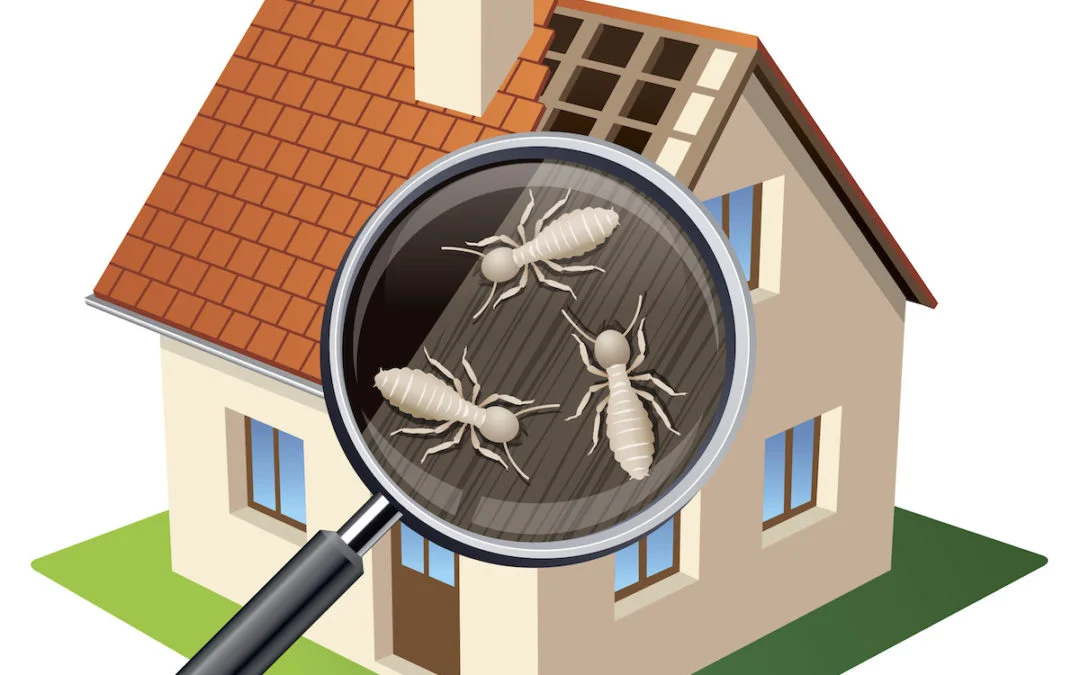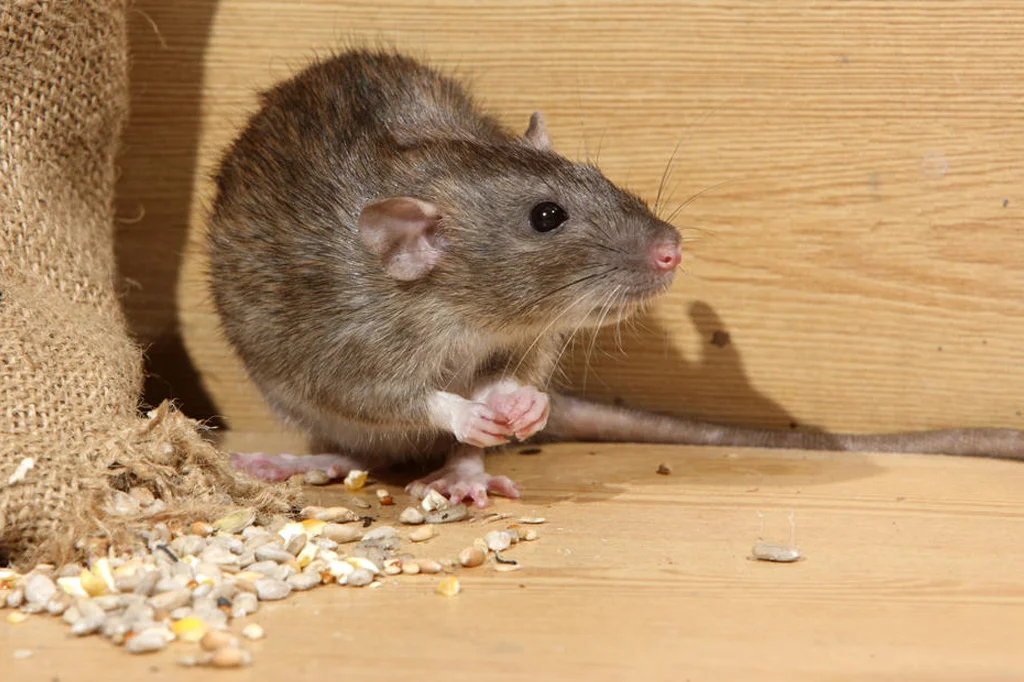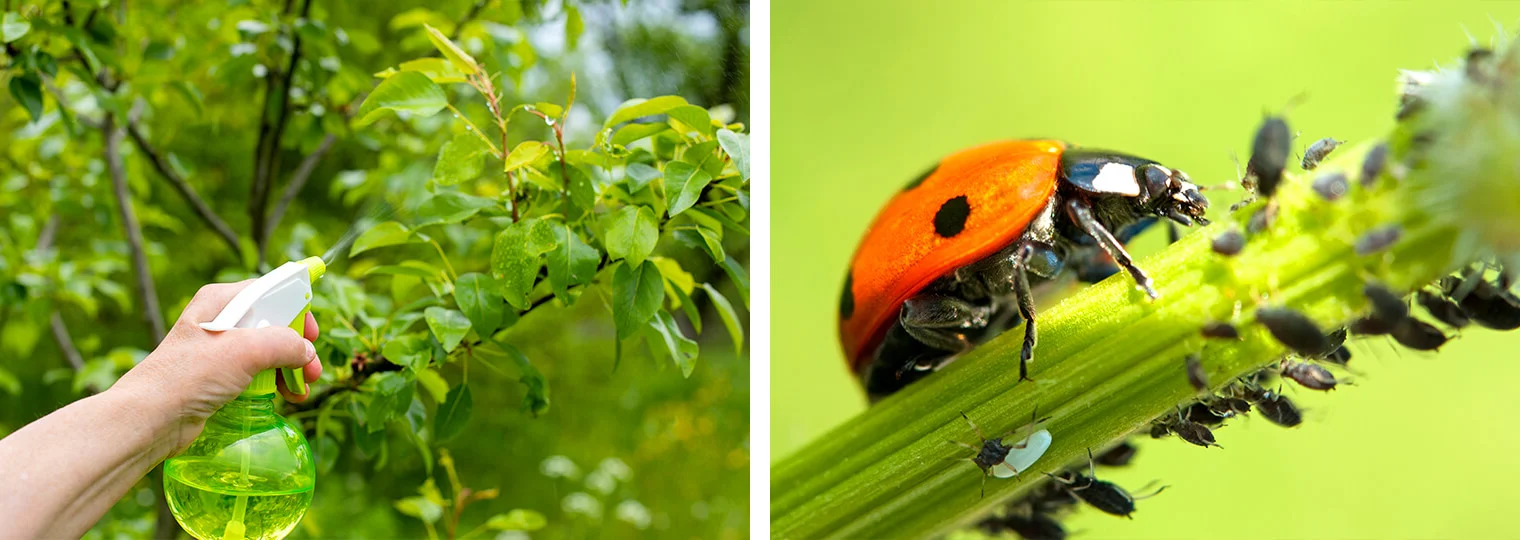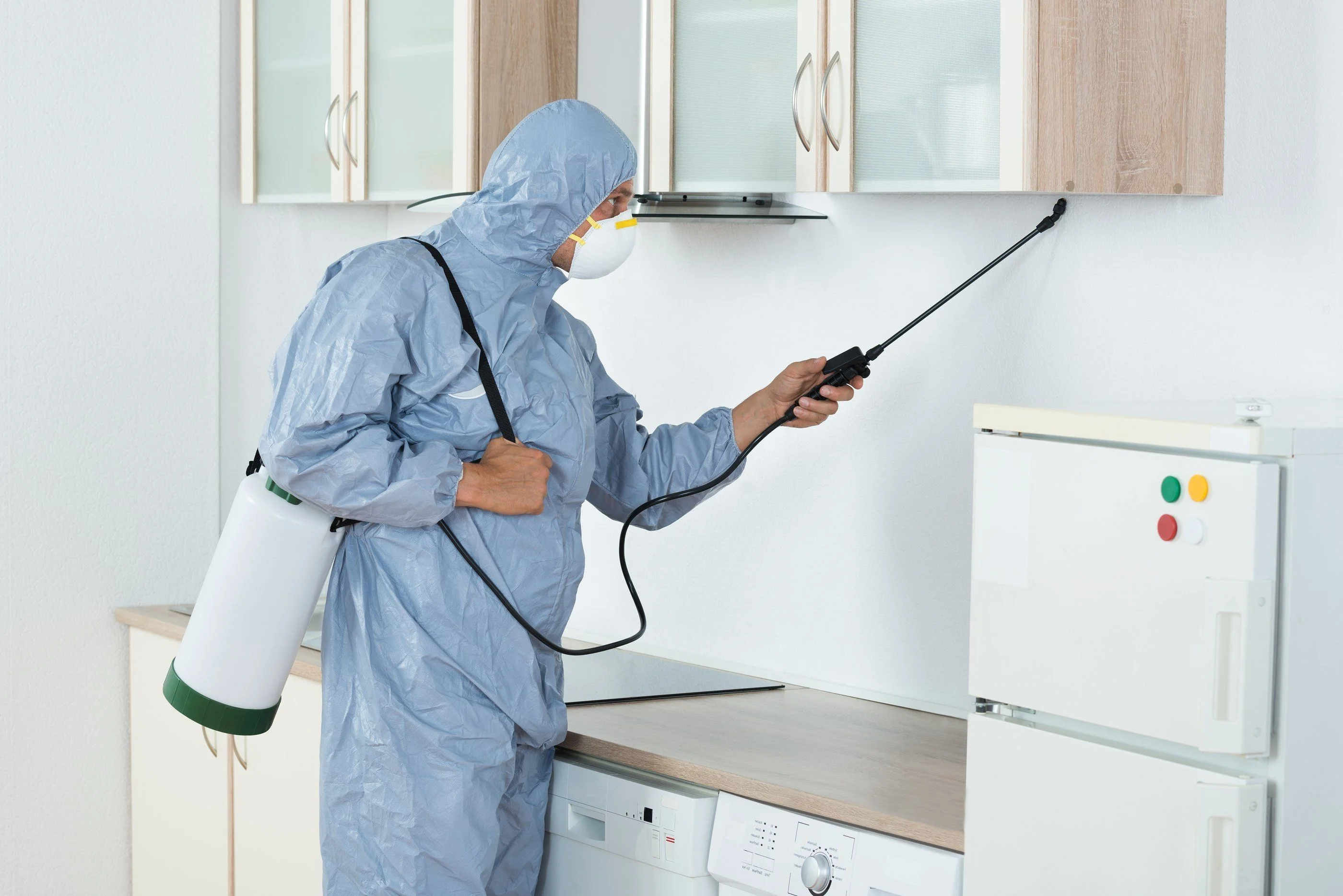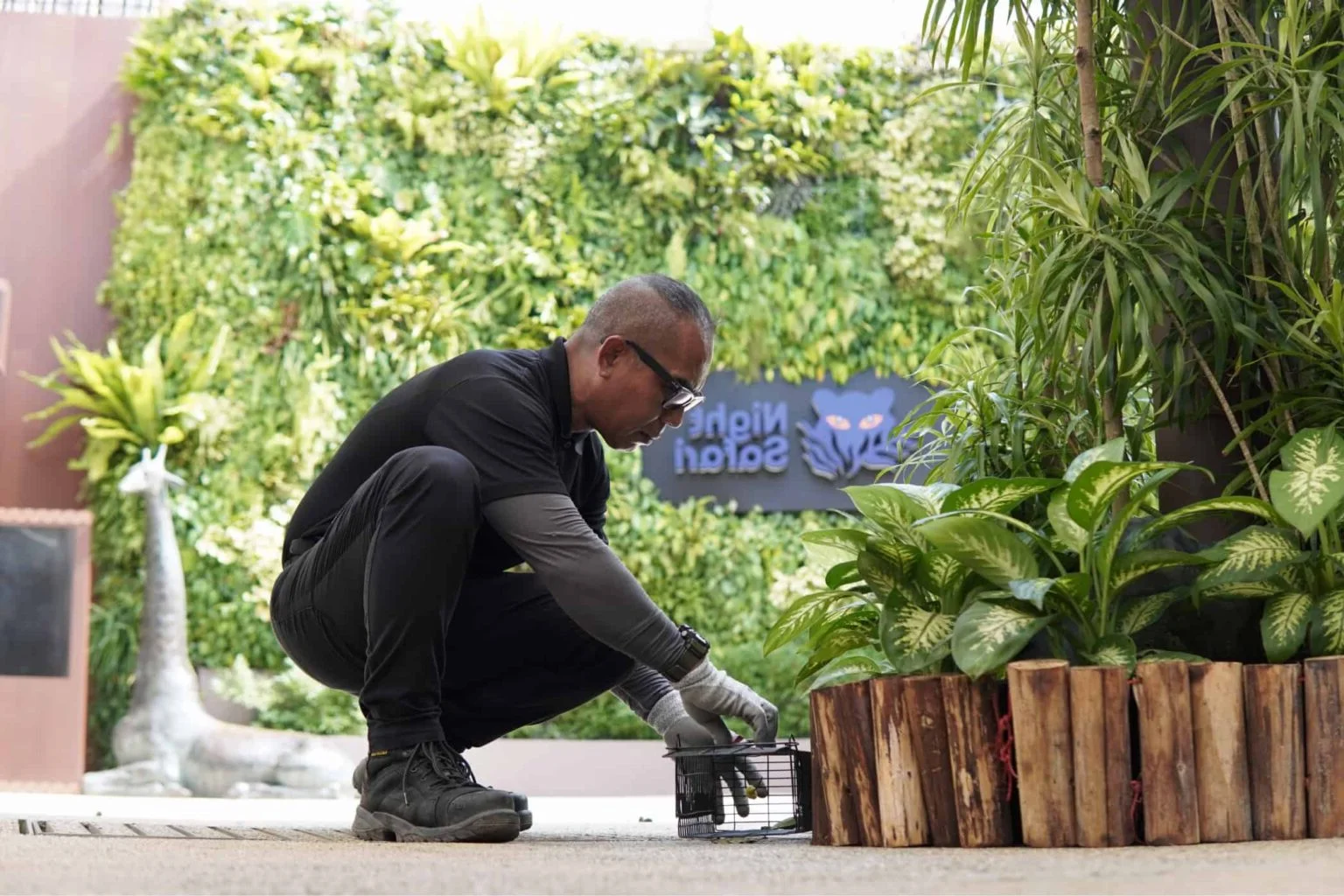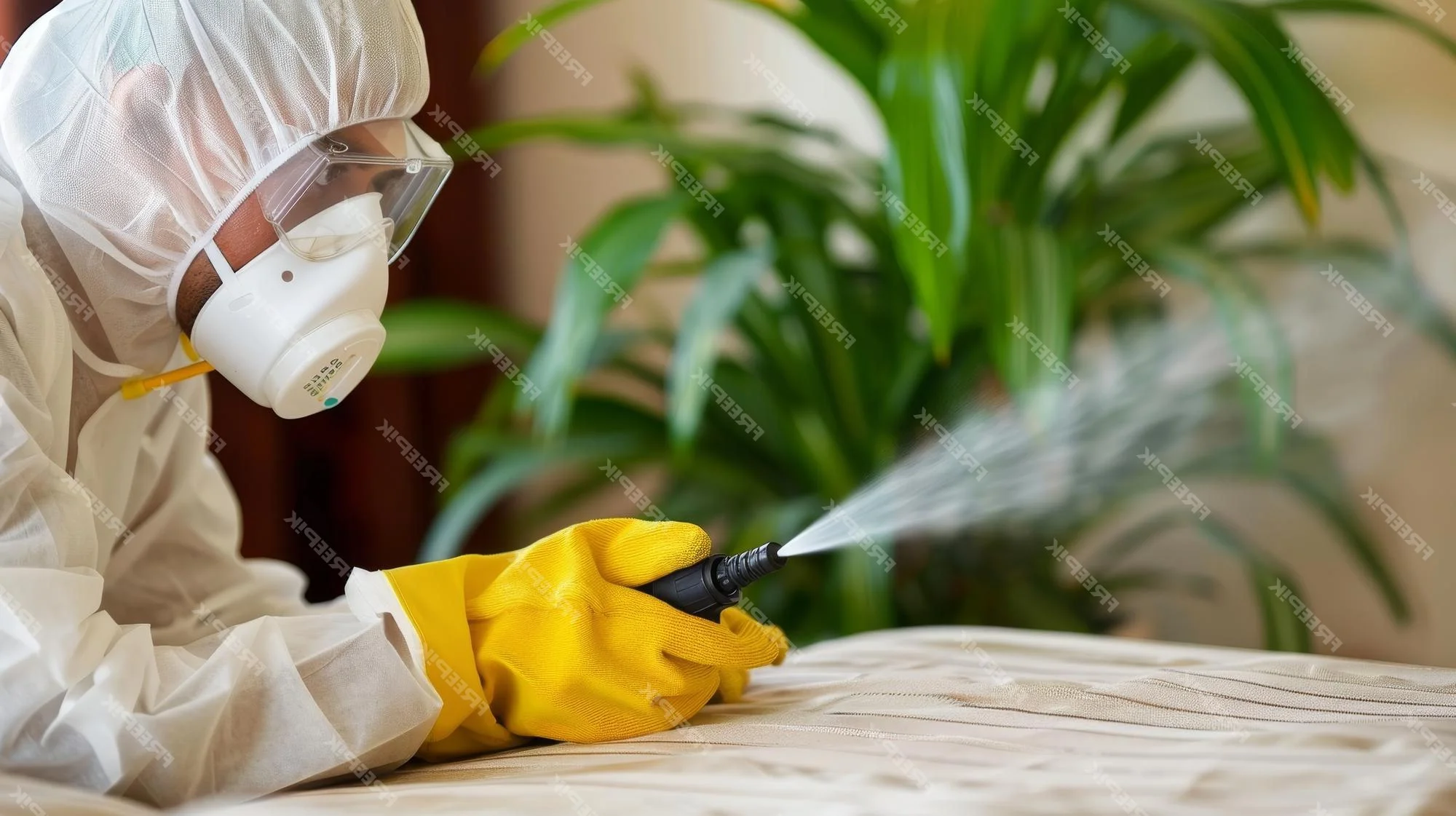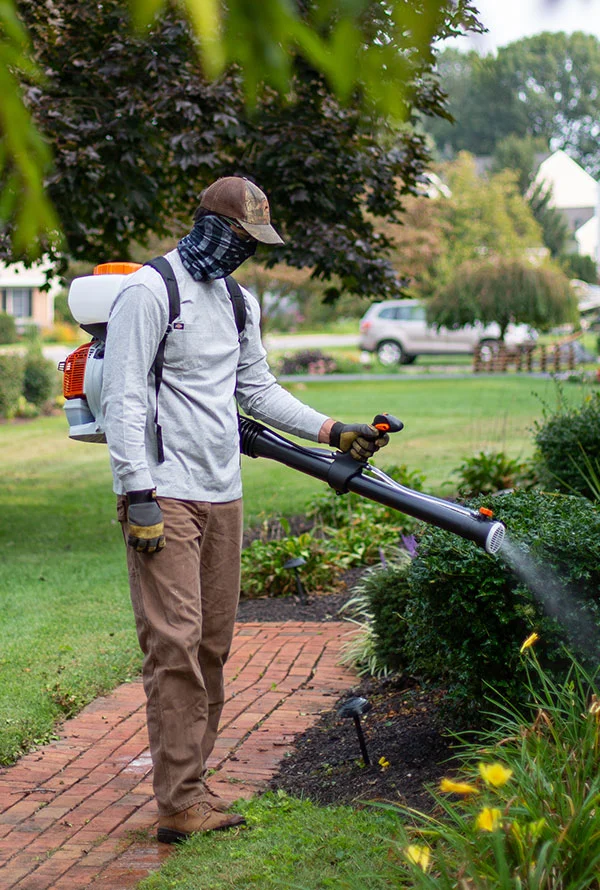From the coastal beaches of Sussex County to the urban corridors of New Castle County, Delaware's diverse landscapes create ideal conditions for a wide range of persistent pests. The First State's position on the Delmarva Peninsula, with its humid subtropical climate, abundant waterways, and mix of urban, suburban, coastal, and agricultural environments supports year-round pest activity that challenges homeowners and businesses alike. Effective pest control in Delaware requires specialized knowledge of these regional conditions, seasonal pest cycles, and the unique structures found throughout the state.
Properties across Delaware face consistent pest pressure that can damage structures, compromise health, and disrupt quality of life in communities from Wilmington to Rehoboth Beach. Whether dealing with mosquitoes in coastal wetlands, termites in historic Wilmington neighborhoods, or agricultural pests in Kent County farmlands, local professional exterminators provide essential expertise tailored to Delaware's specific regional challenges. This guide explores common Delaware pests, effective control strategies including eco-friendly pest solutions, and why the state's unique combination of climate, geography, and architecture makes professional knowledge particularly valuable for lasting protection.
Dealing with persistent Delaware pests? Our local specialists offer
emergency pest control
24/7 and comprehensive
termite & mosquito protection throughout the state.
Contact us today for prompt assistance!
Pest Control Challenges Specific to Delaware
Delaware's unique environment creates distinctive pest control challenges that require specialized approaches. Here's why pest management in the First State demands expert attention:
-
Distinct ecological zones Despite being the second-smallest state, Delaware encompasses coastal beaches, inland watersheds, wetlands, agricultural areas, and urban centers—all supporting different pest populations that readily move between these zones and creating complex management challenges.
-
Coastal influence The state's eastern border along the Atlantic Ocean and Delaware Bay creates significant humidity and moisture conditions that support thriving populations of mosquitoes, termites, and moisture-dependent pests, particularly in coastal communities.
-
Historic properties Delaware's status as the first state means abundant historic structures, particularly in Wilmington, New Castle, Dover, and Lewes, that require specialized pest management approaches that protect irreplaceable features while addressing unique vulnerabilities created by traditional construction methods.
-
Tourism-heavy areas Delaware's beach communities experience dramatic seasonal population fluctuations, creating unique pest pressure on vacation properties that may sit vacant for extended periods before suddenly becoming occupied during peak season.
-
Agricultural-urban interface The close proximity of farmland to suburban and urban areas throughout the state creates distinctive pest movement patterns as agricultural pests readily migrate to residential properties, particularly during harvest times or when fields are disturbed.
Understanding these Delaware-specific challenges is crucial for effective pest management. Professional pest control services develop customized treatment plans that address these regional factors, providing targeted protection for the state's distinctive environmental and structural conditions.
Common Pests in Delaware
Delaware's environment supports a diverse range of pests that impact homes and businesses throughout the year. Here are the most common invaders that plague the First State:
Mosquitoes
Professional mosquito fogging being conducted at a Delaware coastal property
Delaware's abundant waterways, wetlands, and seasonal rainfall create ideal breeding conditions for numerous mosquito species. Coastal areas and communities near marshlands face particularly intense pressure, with salt marsh mosquitoes adding to the typical freshwater species found throughout the state. Beyond the nuisance of itchy bites, these insects can transmit West Nile virus, Eastern equine encephalitis, and other diseases of concern.
Effective mosquito control combines source reduction to eliminate standing water, strategic larvicide applications in areas that cannot be drained, and barrier treatments around properties. Professional services typically provide monthly treatments during Delaware's extended mosquito season (April through October) to protect outdoor living spaces, with specialized approaches for coastal properties where pressure remains high throughout the warm season.
Termites
Technician performing a termite inspection on a historic Delaware property
Eastern subterranean termites thrive in Delaware's humid climate, particularly in the state's abundant historic properties and older neighborhoods. These wood-destroying insects remain active year-round in the state's relatively mild climate, with peak swarming activity occurring during spring months. Delaware's combination of high humidity, sandy soils in many areas, and abundant wooden structures creates ideal conditions for these persistent pests.
Professional termite control in Delaware often combines liquid soil treatments with monitoring and baiting systems, adapted to each property's specific construction and conditions. Historic structures require particularly careful approaches that protect irreplaceable components while addressing vulnerabilities. Annual termite inspections are crucial for Delaware properties, especially those in older communities where colony pressure remains constant and early detection prevents extensive damage to wooden structures.
Stink Bugs
Professional inspection for stink bug entry points in a Delaware home
Brown marmorated stink bugs have become increasingly problematic throughout Delaware, particularly during fall months when they seek indoor shelter. These invasive pests create significant nuisance issues with their distinctive odor when disturbed, tendency to aggregate in large numbers, and ability to penetrate homes through tiny gaps and crevices. Delaware's agricultural areas face additional challenges as these insects damage crops before moving to nearby residential properties.
Effective management of stink bugs involves thorough exclusion work to seal entry points around windows, doors, utility penetrations, and other vulnerabilities. Professional services provide targeted treatments of exterior gathering areas and perimeter applications timed before fall invasion periods. Since total elimination can be challenging once these pests have entered wall voids and attic spaces, preventative approaches provide the best protection for Delaware properties.
Ticks
Delaware's wooded areas, tall grasses, and abundant wildlife support several tick species of medical concern, including the blacklegged (deer) tick, American dog tick, and lone star tick. These parasites can transmit Lyme disease, Rocky Mountain spotted fever, ehrlichiosis, and other serious illnesses. The state's mild winters allow extended activity periods, while suburban development in formerly wooded areas has increased human-tick encounters throughout the state.
Professional tick control combines strategic yard treatments focusing on perimeter areas, leaf litter management recommendations, and landscape modifications to reduce tick habitat. For Delaware homeowners, particularly those in wooded communities or properties bordering natural areas, regular perimeter treatments throughout the warm season provide protection during outdoor activities and reduce the risk of tick-borne diseases.
Rodents
Setting up rodent control measures for a Delaware home
Delaware's mix of urban centers, suburban communities, and agricultural areas all face challenges with rodent populations. Urban areas like Wilmington contend with Norway rats and house mice, while suburban and rural properties more commonly encounter deer mice and field mice. The state's relatively mild winters drive these pests to seek indoor shelter during cooler months, creating seasonal invasion pressure each fall.
Comprehensive rodent control begins with thorough exclusion work to seal entry points—particularly important for Delaware's older homes with their numerous gaps and penetrations. Professional services combine strategic monitoring systems, targeted trapping or baiting programs, and ongoing prevention measures. For coastal vacation properties, specialized approaches address the unique vulnerabilities of seasonally occupied structures where rodents may establish during vacant periods.
Eco-Friendly Pest Control for Delaware's Delicate Ecosystems
Delaware's precious natural resources—from the coastal beaches and dunes to inland wetlands and waterways—demand careful consideration in pest management approaches. Modern eco-friendly pest solutions protect homes and businesses while preserving the state's delicate ecosystems. Professional services implement Integrated Pest Management (IPM) principles that minimize chemical use through careful inspection, precise targeting, and preventative measures.
This sustainable methodology is especially valuable in Delaware, where many communities maintain close relationships with sensitive environmental areas including the Delaware Bay, inland watersheds, and protected wetlands. Eco-friendly solutions are ideal for families with children, pet owners, organic gardeners, and properties near sensitive habitats or waterways. Professional exterminators receive specialized training in Delaware's environmental protection requirements, ensuring treatments comply with regulations while safeguarding the First State's natural treasures.
Environmental Commitment
Delaware pest control specialists understand the importance of protecting the state's unique coastal ecosystems and watershed areas, using carefully selected treatments that effectively manage pests while minimizing impact on non-target species and water quality.
Below is a comparison of different pest control treatment methods, including green options, highlighting their benefits for Delaware properties:
| Treatment Method |
Benefits |
Ideal Use in Delaware |
| Targeted Applications |
Minimizes chemical use through precise application only where needed, reducing environmental impact while addressing specific pest issues.
|
Tick control in property perimeters, stink bug management, and treatment of specific pest harborage areas while protecting Delaware's sensitive watersheds and coastal ecosystems.
|
| Biological Controls |
Uses natural predators, parasites, or pathogens to reduce pest populations in an environmentally compatible way.
|
Mosquito management in wetland buffer zones, agricultural pest control near residential areas, and specialized applications for properties near water features like the many streams and ponds throughout Delaware.
|
| Physical Exclusion |
Creates barriers to prevent pest entry without chemicals; provides long-term protection with zero environmental impact.
|
Rodent exclusion for historic and beach properties, preventing stink bug invasions, and securing vacation homes against seasonal pests without chemical dependence.
|
| Habitat Modification |
Addresses conditions that attract pests by altering environmental factors that support pest populations without chemical intervention.
|
Mosquito breeding site elimination, proper mulch management to reduce termite attractants, and landscape adjustments that minimize tick habitat on Delaware properties.
|
| Low-Impact Formulations |
Uses products designed to break down quickly in the environment while effectively targeting specific pests.
|
Applications near Delaware's abundant waterways, wetlands, and beach areas where product selection must consider potential environmental impacts while still providing effective pest protection.
|
Residential & Commercial Pest Control Throughout Delaware
Residential Pest Protection
Delaware homes face unique pest pressures influenced by location, architecture, and surrounding environment. Residential pest protection programs are tailored to the specific challenges of different Delaware properties, from historic Wilmington neighborhoods to suburban communities in Newark, coastal homes in Rehoboth Beach, and rural properties in Kent and Sussex counties.
Professional services offer customizable plans that provide protection against Delaware's most common household pests, with particular emphasis on mosquito management in coastal areas, termite protection for older structures, and comprehensive approaches for stink bugs and seasonal invaders. Treatment schedules adapt to the state's distinct seasons, with increased attention during spring and summer when pest activity peaks. For Delaware's beach communities, specialized service plans address the unique needs of vacation properties that may sit vacant for extended periods.
Commercial Pest Control
From restaurants in Wilmington to hotels in Rehoboth Beach, healthcare facilities in Dover, and warehouses along the I-95 corridor, Delaware businesses need reliable pest management to protect their reputations and comply with regulations. Commercial pest control programs address the distinctive challenges of Delaware's business environment, with industry-specific protocols for hospitality, food service, healthcare, education, manufacturing, and retail.
Professional services provide comprehensive documentation—critical for compliance with health codes—along with discreet service scheduling and emergency response capabilities. Many of Delaware's commercial properties occupy historic buildings with inherent pest vulnerabilities that require specialized approaches. For beach communities with their tourism-based economy, effective pest management provides invisible protection that enhances visitor experiences throughout the busy summer season while handling the unique challenges of seasonal business operations.
From residential pest protection plans to customized
commercial pest control solutions, we have you covered throughout Delaware –
schedule your service now and keep your
property pest-free!
Why Choose Local Experts in Delaware?
When it comes to protecting your Delaware property from pests, working with local experts offers distinct advantages. A local pest control company understands the region's specific challenges and truly cares about the community. Here's why choosing local Delaware specialists makes a difference:
-
Knowledge of regional pest patterns Local technicians understand how Delaware's diverse environments—from coastal beaches to urban centers and agricultural areas—affect pest behavior and treatment needs, allowing for precisely targeted approaches that account for local conditions.
-
Experience with Delaware architecture Local experts are familiar with the state's distinctive building styles—from historic colonial structures to beach cottages, suburban developments, and urban row houses—and understand the unique pest vulnerabilities each presents.
-
Understanding of seasonal timing Local specialists know exactly when different seasonal pests become active in specific Delaware regions, allowing for precisely timed preventative treatments before problems emerge—from spring termite swarms to fall stink bug invasions.
-
Familiarity with local regulations Delaware maintains specific pest control regulations that vary by county and municipality, particularly regarding treatments near environmentally sensitive areas. Local professionals navigate these requirements daily, ensuring all services remain fully compliant.
-
Responsiveness to local needs When Delaware's weather creates sudden pest pressures—from post-storm mosquito breeding to seasonal migrations—local teams can respond quickly with emergency pest control services that address emerging issues before they escalate.
By choosing local professional exterminators with deep knowledge of Delaware's specific pest challenges, property owners receive more effective, regionally-appropriate solutions than generic approaches used by those unfamiliar with the First State's unique conditions.
Regional Pest Control Services Throughout Delaware
Despite its small size, Delaware encompasses distinct regions with unique pest challenges based on geography, development patterns, and surrounding ecosystems. Professional pest control specialists understand these regional differences:
New Castle County
Including: Wilmington, Newark, New Castle, Middletown, Townsend
Delaware's northernmost and most populous county blends urban centers, historic districts, and suburban communities. Wilmington's historic neighborhoods face significant challenges with rodents, termites in aging structures, and typical urban pest pressures. Suburban areas contend with ticks and mosquitoes where development meets natural areas, while communities near the Delaware River and numerous creeks experience heightened moisture pest activity. The county's industrial zones also face specialized pest management needs for facilities ranging from manufacturing to corporate offices.
Kent County
Including: Dover, Smyrna, Harrington, Milford, Camden
The state's central county combines Delaware's capital city with extensive agricultural lands and smaller communities. This agricultural-urban interface creates unique pest dynamics, with field pests readily migrating to residential areas during planting and harvest activities. Dover's historic district presents specialized challenges for pest management in irreplaceable structures, while newer developments often contend with construction-disturbed wildlife and insect populations. The county's various waterways also contribute to mosquito pressure throughout warmer months.
Sussex County
Including: Rehoboth Beach, Lewes, Georgetown, Seaford, Millsboro
Delaware's southernmost and largest county presents distinctive pest challenges in its coastal communities, inland towns, and rural areas. The beach regions face intense seasonal pest pressure, particularly from mosquitoes in coastal wetlands and sand flies on beaches. Vacation properties require specialized management approaches that address periodic occupancy patterns. Inland areas blend agricultural activities with rapidly developing communities, creating complex pest dynamics where rural and suburban environments intersect.
Delaware Beaches
Including: Rehoboth Beach, Dewey Beach, Bethany Beach, Fenwick Island
While administratively part of Sussex County, Delaware's beach communities warrant special consideration for their unique pest challenges. These areas experience dramatic seasonal population fluctuations that affect pest patterns, intense coastal mosquito pressure, and distinctive challenges with salt-tolerant pests. Vacation properties face vulnerabilities during unoccupied periods, while the tourism-based economy requires particularly discreet and effective pest management approaches for hospitality venues during peak season.
Top Cities for Pest Control in Delaware
Professional pest control services are available throughout the First State. Below are some of the major Delaware cities and towns where quality pest management is especially important:
Wilmington
As Delaware's largest city, Wilmington faces diverse pest challenges across its urban landscape. The city's historic neighborhoods contend with termites and wood-destroying organisms in aging structures, while established rodent populations thrive in some urban areas. The Christina and Brandywine Rivers create additional moisture-related pest pressure in riverfront communities. Wilmington's commercial districts require specialized pest management for restaurants, healthcare facilities, and office buildings, many occupying historic structures with inherent pest vulnerabilities. The city's revitalized waterfront areas have introduced new pest management challenges as development patterns shift and restoration projects disturb established pest populations.
Rehoboth Beach
This popular coastal resort town exemplifies the unique pest challenges faced in Delaware's beach communities. Proximity to coastal wetlands creates significant mosquito pressure, while the beach environment supports sand flies and other distinctive pests. The town's mix of vacation rentals and year-round residences requires varied pest management approaches, with particular attention to seasonal properties that may sit vacant for extended periods. Rehoboth's status as a premier tourism destination demands discreet yet effective pest management for hotels, restaurants, and attractions, particularly during the intense summer season when both pest activity and visitor numbers peak simultaneously.
Delaware Service Coverage Map
Seasonal Pest Guide for Delaware
Spring (March-May)
- Termite swarms emerge
- Ant colonies become active
- Mosquito breeding begins
- Tick activity increases
Recommendation: Schedule annual termite inspection, implement mosquito prevention before summer, and prepare yard for tick control.
Summer (June-August)
- Mosquito activity at peak levels
- Stinging insects establish colonies
- Ant infestations more visible
- Increased pest pressure in beach towns
Recommendation: Maintain regular mosquito treatments, address stinging insect nests promptly, and continue comprehensive protection through peak season.
Fall (September-October)
- Stink bugs seek winter shelter
- Rodents begin moving indoors
- Spiders become more visible
- Last surge of mosquito activity
Recommendation: Critical timing for preventing stink bug invasions, implementing rodent exclusion, and final mosquito treatments.
Winter (November-February)
- Rodent activity concentrated indoors
- Occasional warm days activate overwintering pests
- Reduced outdoor pest activity
- Preparation for spring pest emergence
Recommendation: Focus on indoor pest management and planning for early spring services as Delaware's winter remains relatively mild.
Delaware's relatively mild climate means year-round pest activity, with only brief periods of reduced pressure during the coldest winter months. Professional pest control services adjust their approach with each season to address predictable patterns and protect properties during key seasonal transitions.
What Our Delaware Clients Say
"After struggling with mosquitoes making our backyard in Lewes unusable each summer, their comprehensive treatment program has finally allowed our family to enjoy our outdoor space without constant swatting and itching."
- Jennifer R., Lewes
★★★★★
"Their termite protection program saved our historic New Castle home from what could have been devastating damage. Their inspector found early signs of activity that our previous company had completely missed during routine inspections."
- Michael T., New Castle
★★★★★
"As a restaurant owner in Rehoboth Beach, pest control is critical for our success during the busy summer season. Their commercial service is thorough, discreet, and has kept us consistently pest-free even during the peak tourist months when our kitchen is operating at maximum capacity."
- Lisa M., Rehoboth Beach
★★★★★
Frequently Asked Questions
How do you handle pest control for Delaware beach vacation properties?
Delaware beach vacation rentals and second homes require specialized pest management approaches that account for their unique usage patterns. We develop customized programs based on occupancy schedules, coordinating more intensive services during vacancy periods and maintenance treatments before guest arrivals. For properties that sit empty during off-season months, we implement comprehensive protection against rodents and other pests that might seek shelter in unoccupied buildings. Many of our beach property clients arrange quarterly perimeter treatments with additional mosquito control during summer months when outdoor spaces are in heavy use. We can coordinate directly with property management companies or caretakers to ensure seamless service even when owners are away. Additionally, we provide specialized recommendations for proper storage of outdoor furniture, equipment, and other items that might otherwise become pest harborage areas during vacant periods.
What's the best solution for Delaware's stink bug invasions?
Effective management of Delaware's problematic stink bug invasions requires a proactive, multi-faceted approach. The most successful strategy begins with comprehensive exclusion work before fall invasion periods, typically starting in late August or early September. This includes sealing cracks around windows, doors, utility penetrations, siding joints, and other potential entry points. We combine this with strategic exterior treatments applied to common gathering areas and likely entry points, creating a protective barrier that intercepts these pests before they can enter your home. For properties with historical stink bug issues, we recommend a two-phase approach with initial preventative treatments in late summer followed by reinforcement applications in early fall. Once stink bugs have entered wall voids and attic spaces, control becomes more challenging, which is why our emphasis on prevention delivers the best results. For immediate relief from indoor infestations, we can provide targeted treatments and removal of visible insects, though prevention remains the most effective long-term solution for Delaware homes.
How often should Delaware homeowners schedule pest control?
The ideal frequency for pest control in Delaware depends on several factors including your property's location, specific pest pressures, and desired level of protection. Most Delaware homes benefit from quarterly service that aligns with the state's seasonal pest cycles. However, properties with specific challenges often require adjustments to this schedule. Coastal homes typically need monthly mosquito treatments during the May-September season, while properties in heavily wooded areas may require additional tick management during warmer months. Homes with historical stink bug or rodent issues often benefit from additional fall services focused specifically on these seasonal invaders. Vacation properties at Delaware beaches generally require service schedules coordinated with occupancy patterns. During your initial inspection, our technicians will evaluate your property's unique situation and recommend a customized schedule that provides protection against Delaware's predictable seasonal pest pressures while addressing any specific concerns for your home or location.
How do you protect Delaware's waterways during pest treatments?
Protecting Delaware's precious waterways—from the Delaware Bay to inland ponds, streams, and wetlands—is a priority in all our pest management protocols. We implement several specific practices to ensure environmental safety while still providing effective pest control. First, we maintain buffer zones around water features, adjusting application methods and product selection for properties near sensitive areas. Our technicians receive specialized training in Delaware watershed protection, including identification of drainage patterns that might indirectly channel products to waterways during rainfall. We utilize targeted application techniques that minimize drift and runoff potential, and select products with environmental profiles appropriate for each specific location. For properties directly adjacent to water features, we often implement enhanced biological and physical control methods that reduce chemical dependence while maintaining effective pest management. All our treatments comply with Delaware's environmental regulations, including specific guidelines for treatments near waterways, wetlands, and other sensitive habitats. This careful approach allows us to provide effective pest protection while helping preserve Delaware's water quality for future generations.
